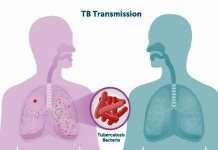
Non-communicable diseases (NCDs) have emerged as one of the most significant public health challenges of our time. Conditions such as hypertension, diabetes, and cardiovascular disease often develop silently. By the time symptoms become evident, the disease is frequently well advanced, making early intervention all the more crucial.
The phrase “Know your numbers” is more than just a catchy slogan—it is a call to action, urging individuals to take charge of their health through regular monitoring and awareness. This article explores the importance of this concept, examines its impact through successful public health campaigns, and considers what it means for healthcare professionals and everyday people.
The silent progression of NCDs
Many NCDs are insidious. For instance, elevated blood pressure may exist without any noticeable symptoms until it precipitates a stroke or heart attack. This “silent progression” is why regular health checks are paramount. Unfortunately, the average person often thinks, “Why schedule health checks when I feel fine?” This complacency can lead to late diagnoses, where treatment options are limited and outcomes poorer.
Knowledge is power in the fight against these diseases. When individuals are informed about their health metrics—such as blood pressure, blood sugar, and cholesterol levels—they become empowered to make decisions that can prevent disease progression. For healthcare professionals, this means shifting from a reactive model of care to a proactive one, emphasising early detection and intervention.

Know your numbers: How social marketing inspires behaviour change
One illustrative example is the Know your numbers campaign, which sought to raise awareness about monitoring blood pressure. The campaign encouraged individuals to take regular readings and share their results with healthcare providers, facilitating early detection of potential issues. Although evaluating the direct impact of such campaigns can be challenging, early evidence suggests that increased public awareness has led to more routine checks and, ultimately, earlier interventions.
Patients are now more inclined to ask questions about their readings, understand what constitutes a normal versus an elevated blood pressure level, and discuss lifestyle modifications that could prevent further health deterioration.
Bridging the gap between professionals and the public
For healthcare professionals, campaigns like Know your numbers provide valuable tools for patient education. They serve as catalysts for dialogue, enabling pharmacists and other healthcare workers to explain why routine monitoring is essential, how to interpret various health metrics, and what steps to take if numbers fall outside recommended ranges. The availability of community health events, digital tracking tools, and supportive resources helps bridge the gap between medical knowledge and everyday practice.
For the average person, the message is straightforward: understanding your health metrics is an act of self-care. It means being proactive rather than reactive—taking steps today to prevent the complications of tomorrow. Empowered individuals are more likely to seek medical advice, adhere to treatment plans, and make lifestyle changes that mitigate risk. This dual approach—where professionals guide and patients participate—can lead to a broader cultural shift towards preventative healthcare.
Future of preventative health campaigns
Looking ahead, the integration of technology with public health initiatives promises to further enhance our ability to know our numbers. Mobile health applications, wearable devices, and telemedicine are already transforming how we monitor and manage health. These technologies not only facilitate regular tracking of vital health metrics but also enable data sharing between patients and healthcare providers, leading to more personalised care plans.
However, technology alone will not suffice. The human element—education, motivation, and engagement—remains critical. Campaigns must continue to simplify health information and present it in an accessible and actionable way. This requires collaboration between public health experts, medical professionals, community leaders, and even the media to ensure that the message of preventative care resonates across different segments of society.
Conclusion
In a world where non-communicable diseases are often diagnosed only after significant progression, the imperative to Know your numbers is clearer than ever. Campaigns like this empower individuals to take charge of their health while providing healthcare professionals with a valuable framework for early intervention and patient education. By learning from past successes and embracing new technologies, we can build a future where preventative care is the norm rather than the exception.
Whether you are a healthcare provider or an individual striving to be your own hero, the message remains the same: stay informed, be proactive, and transform your health journey by knowing your numbers.
By Pharm. (Dr) Onyinye Bridget Chiekwe, PharmD, MScPH, ABMP
pharmbree25@gmail.com










